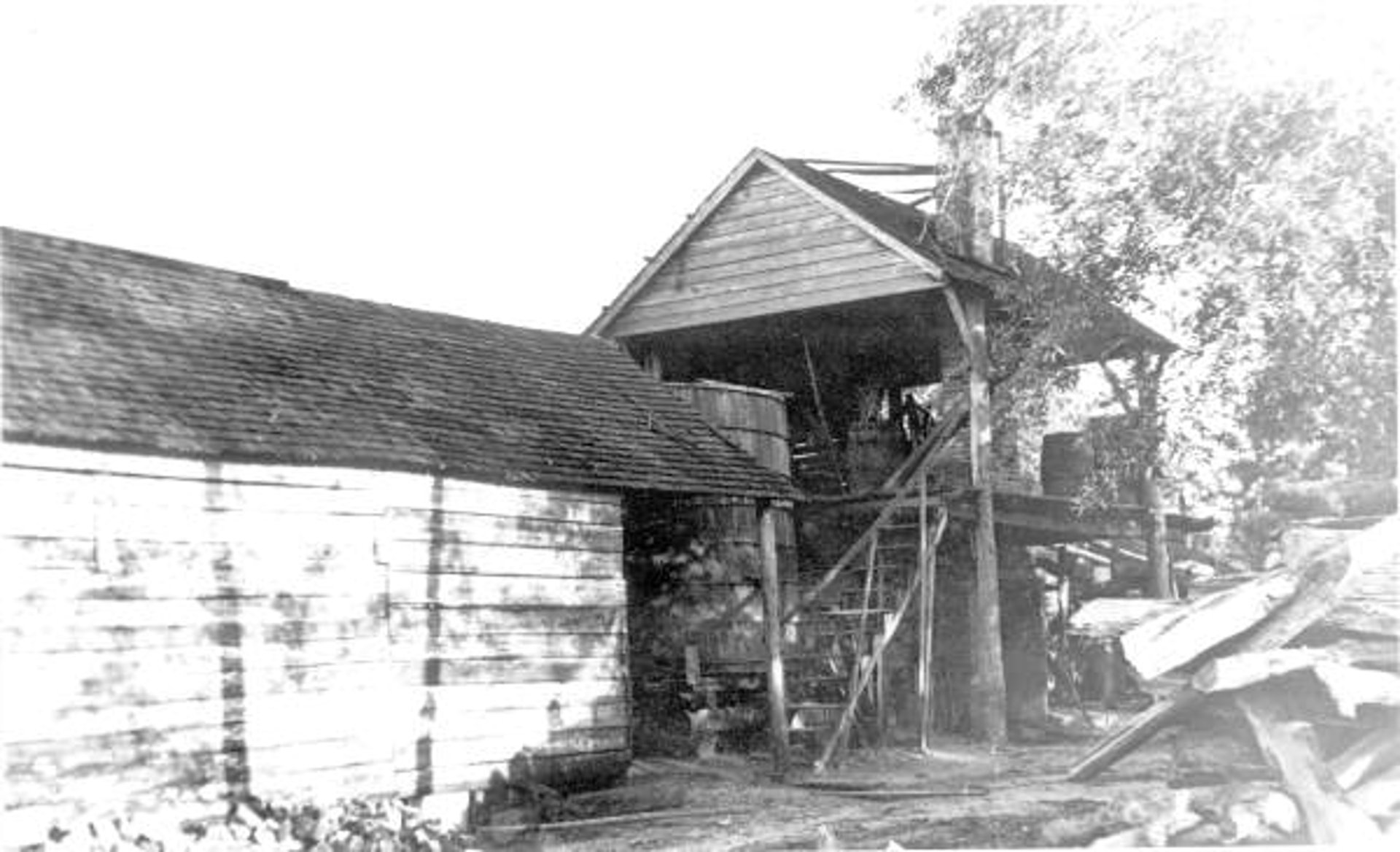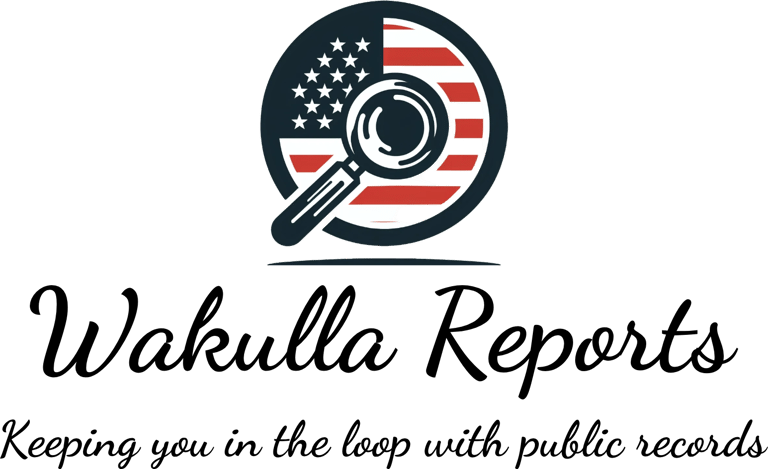Wakulla County’s Sewer Fee Debacle: A $6 Million Flush of Your Money and a Masterclass in Mismanagement
Tear into Wakulla County’s $6 million sewer fee waiver fiasco, exposing a botched NWFWMD grant, no BOCC approval, and a risky USDA loan workaround, with kudos to the County Internal Auditor for shining a light on this taxpayer-robbing mess.
2025DEVELOPMENT & INFRASTRUCTUREMONEY & FINANCE
Ida B. Wells
6/11/20257 min read


Buckle up, Wakulla County, because the latest internal audit report from March 2025 is a steaming pile of proof that our county government can’t stop tripping over its own feet. The Board of County Commissioners (BOCC) and Clerk of the Courts have gifted us another financial fiasco: nearly $6 million in waived sewer connection fees, a shady workaround on a USDA loan, zero BOCC approval for the waivers, and a non-ad valorem tax system that leaks revenue like a busted pipe. The county banked on a grant from the Northwest Florida Water Management District (NWFWMD) to cover connection fees, got denied, and instead of fighting for answers, just waived the fees—sticking taxpayers with the bill. Add in untracked special assessments and undercharged fire and solid waste fees, and you’ve got a crap show that makes the 2023 $14 million tax roll blunder look like a warm-up act. Let’s dive into the muck.
The FULL report can be found starting on page 1 of the full BOCC Meeting Agenda for June 16, 2025 that can be downloaded here.
The Sewer Fee Fiasco: $6 Million Down the Drain
The heart of this disaster is the county’s sewer expansion project in Wakulla Gardens and Magnolia Gardens. The March 2025 audit lays it bare: 960 homes connected to the sewer system in Phases 1-3 had their connection fees—$3,850 for Phases 1 and 2, $4,050 for Phase 3—completely waived, totaling a staggering $3,783,200. Phase 4 is underway, and the county’s planning to waive another $2,142,450 for 529 more homes. That’s nearly $6 million in revenue the county just… let go. If you’re in one of those homes, you didn’t pay a dime upfront for the connection, but don’t celebrate yet—every other taxpayer in Wakulla County is picking up the tab.
Why waive the fees? The county thought a grant from NWFWMD would cover them. Section 1.D of the grant agreement promised funds for “payment of County capacity and connection fees” for the sewer projects. But when the county sent the bill, NWFWMD said, “Nope, not paying.” The audit doesn’t say why—maybe the grant terms were misinterpreted, maybe NWFWMD’s budget was tight, or maybe the county botched the paperwork. Whatever the reason, the county didn’t push back, didn’t demand answers, and didn’t explore other funding. They just waived the fees and moved on. That’s right: they assumed the money was coming, didn’t double-check, and when it fell through, they shrugged and said, “Taxpayers will cover it.” It’s like buying a car, assuming your buddy will pay, and when he bails, you just hand the dealership your neighbor’s wallet.
County ordinance (Sec. 31.038) says connection fees exist to offset the burden on the sewer system by funding improvements for new users. A 2021 Wastewater Revenue Sufficiency and Access Fee Study, approved by the BOCC via Resolution 2021-78, set the fees to ensure the system could expand without screwing over existing customers. So why waive them? The county’s betting that monthly sewer bills—$40.02 for the first 2,000 gallons, jumping to $41.02 in April 2025, plus a $110 deposit and $25 setup fee—will cover the gap. But that’s a gamble, and with nearly $6 million already gone, it’s a gamble we’re all bankrolling.
The USDA Loan: A Slippery Slope and a Shady Workaround
Here’s where it gets worse. The sewer expansion was funded by a USDA loan, and the loan’s rules (RUS Bulletin 1780-27, section 10) are crystal clear: the county must ensure revenues cover debt, operations, maintenance, and reserves, and “no free service or use of the facility will be permitted.” Waiving $6 million in connection fees sure sounds like free service, doesn’t it? That put the county at risk of violating the loan terms, which could have serious consequences—like defaulting on the debt or losing future funding.
In 2021, the County Administrator, Director of Fiscal Operations, Clerk of the Court, Clerk Finance Director, USDA reps, and Southeast Rural Community Assistance Project (SRCAP) held a meeting to hash this out. The Clerk’s Office were concerned that waiving fees violated the loan and county rules. But the USDA and SRCAP reps said the “no free service” clause only applied to monthly sewer bills, not connection fees, so no USDA approval was needed. The Clerk’s Office made the journal entry to wipe the fees. That’s right: they processed a $3.8 million decision. But wait! There's more!
County ordinance (Sec. 31.038) requires BOCC approval for any fee waivers, and the audit found no documentation of this. No agenda item, no vote, no resolution—nothing. A review of BOCC meeting agendas from the time turned up zilch. So, a decision to waive millions in revenue was made in a backroom, bypassing the elected officials who represent us. The county’s management response claims staff “discussed” the waivers with commissioners, but without a formal vote or record, that’s just hot air. This isn’t just a paperwork snafu; it’s a middle finger to transparency and accountability. Who made this call? Why wasn’t the BOCC involved? And why are we only hearing about it now?
Non-Ad Valorem Taxes: Leaking Revenue Like a Cracked Pipe
The audit didn’t stop at sewer fees—it also dug into non-ad valorem taxes, like fire and solid waste assessments and a special broadband assessment for Elm Ridge, Sweetwater Ridge, and The Park These are charged when a Certificate of Occupancy (CO) is issued, and the process is a mess. The Building Department uses a spreadsheet from the Clerk’s Finance Department to calculate fees based on the month the CO is issued. If you get a CO between January and September, you pay for the rest of the fiscal year plus the next one, because only COs issued before year-end make it onto the tax roll.
Here’s the problem: when assessments increase (as they do most years), properties paying at CO issuance get charged the old rate, not the new one. In 2022, 327 properties paid $3 less for fire ($981 total) and 323 paid $4 less for solid waste ($1,292 total). In 2023, 355 properties paid $96 less for fire, costing the county $34,080. The audit calls this “not an error,” just “how the process works.” Are you kidding? A process that loses tens of thousands because it can’t keep up with approved rates is a broken process. The county’s response? They’ll only bill for the difference if it’s “cost-effective.” Translation: if it’s too much work, they’ll let the money slip away. Why are our county processes and technology so antiquated?
The broadband special assessment for about 200 properties isn’t much better. The county followed the rules—public hearings, notices, options to prepay or spread payments over five years—but still screwed it up. One property owner in 2022 prepaid the full amount and got billed for the first installment on their tax bill. A refund’s in process, but come on—how does that slip through? Worse, after the prepayment period, nobody on the county side is tracking these assessments. The Tax Collector handles delinquent taxes, and Finance tracks payments for reporting, but there’s no county oversight to ensure it all adds up. It’s like handing out $200,000 in IOUs and forgetting to check if they’re paid.
A History of Stumbling: The 2023 Tax Roll Ghost
If this feels like déjà vu, it’s because Wakulla County has a track record of financial faceplants. Remember 2023, when the Property Appraiser’s office botched the tax roll, leading to a $14 million shortfall? Businesses and homeowners were hit with surprise tax hikes, and the county scrambled to fix it while pointing fingers. Now, we’re staring down another self-inflicted wound: a $6 million fee waiver with no board approval, a grant denial nobody questioned, and a tax system that leaks revenue like it’s going out of style. The 2023 mess should’ve been a wake-up call, but it seems the county hit snooze and went back to sleep.
The audit does note some fixes. After a 2023 sewer rate audit, Revenue Collections cracked down on builders getting free sewer service (yep, that was a thing). The 30 COs sampled from 2022-2024 showed proper documentation for sewer connections, and recent billing issues (like unbilled usage) were resolved. But let’s not throw a parade for doing the bare minimum. When you’re waiving millions and bypassing the BOCC, a few corrected invoices don’t earn you a gold star.
Why Didn’t Anyone Ask Questions?
Let’s circle back to the NWFWMD grant denial, because that’s where this train jumped the tracks. The county assumed the grant would cover connection fees, but when NWFWMD said no, nobody dug deeper. Why was the request denied? Was it a clerical error, a misinterpretation, or did NWFWMD just not have the funds? The BOCC should’ve been briefed. Instead, the county waived the fees and moved on, leaving us to eat the cost. It’s not just putting the cart before the horse—it’s hitching the cart to a horse that never showed up.
And don’t let the county off the hook by blaming NWFWMD. Sure, the grant denial sparked the problem, but the county’s response—waiving fees without BOCC approval and banking on a shaky USDA workaround—is on them. They didn’t just fail to ask why; they failed to plan for a “no.” That’s not leadership; that’s negligence.
What’s at Stake?
This isn’t just about $6 million (though that’s enough to make your blood boil). It’s about trust. The BOCC is our voice, elected to make big decisions like this. Bypassing them means bypassing us. The USDA loan workaround might hold for now, but if sewer revenues don’t cover the debt long-term, we’re on the hook. And the non-ad valorem tax losses—$34,080 here, $1,292 there—add up, chipping away at services we all rely on. Meanwhile, the county’s response is to promise better record-keeping and “cost-effective” billing fixes. That’s like promising to lock the barn door after the horse is halfway to Tallahassee.

Additional Social Links
YouTube is your go-to for short clips, video explainers, and visual breakdowns of how Florida and Wakulla governments really work.
Facebook brings you bite-sized written content, sticky-note facts, and rolling updates you can share and discuss.
NEW! TikTok You can now follow Wakulla Reports on TikTok for quick updates and BOCC video clips.
Prefer to browse at your own pace?
Bookmark our website and visit anytime for fresh posts, resources, and real-life examples from right here in Wakulla County.
© 2024. All rights reserved.
